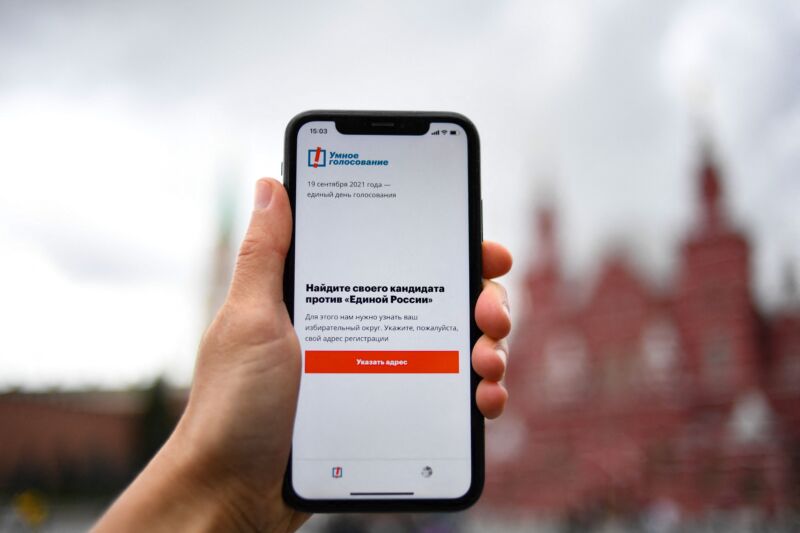
Apple has restored an app sponsored by Alexei Navalny, a prominent leader of Russia's political opposition, to the company's Russian app store. Apple took down the app last September, days before Russia's legislative elections, under pressure from the Russian government.
Russian voters went to the polls last September to elect representatives to five-year terms in the Duma, Russia's legislature. Russia does not have free and fair elections, so no one expected Putin's party, United Russia, to lose its majority. But opposition figures like Navalny still saw the election as an important opportunity to register public disapproval of Putin's regime. To help Russia's fractious opposition parties coordinate, Navalny created an app that listed endorsements for hundreds of candidates.
The Washington Post reported that days before the election, the Russian government sent agents to the homes of top Apple and Google executives in Russia, demanding that Navalny's app be removed from the companies' app stores. Russian authorities claimed that Navalny's group was an "extremist" organization. If Apple and Google failed to comply within 24 hours, the government said, their Russian executives would go to prison.
The intimidation tactics worked, and Apple and Google removed the apps just days before voters went to the polls, limiting the app's influence on the election.
“It was a major blow to our supporters,” Navalny Political Director Leonid Volkov told The Washington Post. “They really helped Putin.”
Google restored the app days after the election, according to The Washington Post. Apple only restored the app in the past few days.
In a letter to Navalny, Apple stated that the Russian government's orders to remove the app “reflect the state of the law in Russia, and Apple was obliged to act on the orders.”
App stores have the potential to be a conduit for uncensored information in countries like Russia, where users are often blocked from accessing websites critical of the regime. But that has put Apple and Google under pressure from repressive governments.
Apple hasn't yet responded to an email from Ars asking why it restored access to the app; the company declined to comment for The Washington Post's story. But we know that Apple has pulled back from doing business in Russia since the Ukraine invasion. The company stopped shipping hardware to Russia in late February.
As far as I can tell, Apple hasn't commented on its current Russian workforce. But it wouldn't be surprising if Apple let many or all of its Russian employees go, given that the company is unlikely to resume doing business in Russia any time soon. If that's the case, it would mean the Russian government has less leverage over Apple.
Tim Lee was on staff at Ars from 2017 to 2021. In 2021, he launched Full Stack Economics, an independent email newsletter about the economy, technology, and public policy. You can subscribe to his newsletter here.
reader comments
101